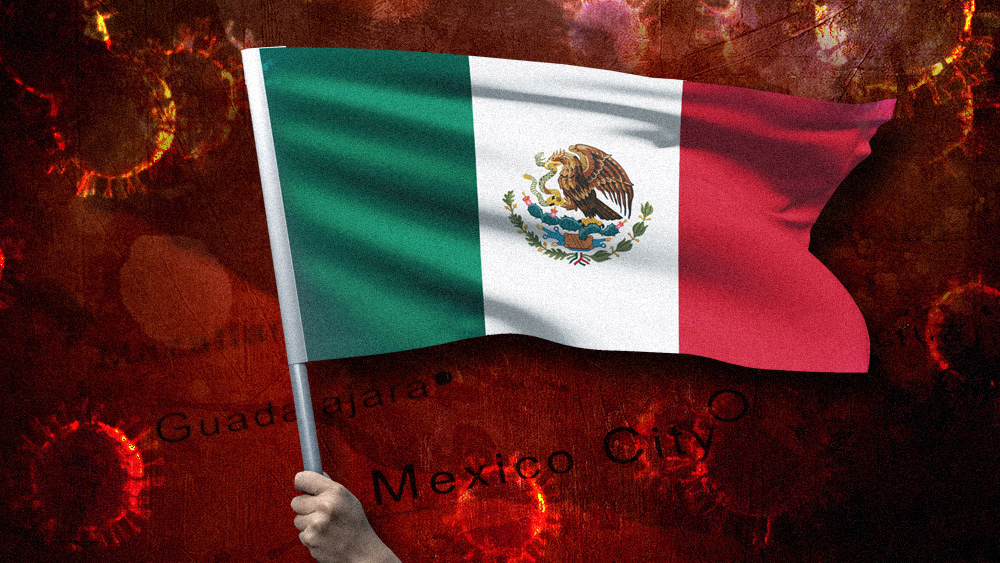Schools close as Beijing sees fresh coronavirus outbreak
06/17/2020 / By Franz Walker

A new outbreak of the Wuhan coronavirus (COVID-19) in Beijing has forced the city to shut down schools and escalate measures to slow the rate of infections in the city.
The shutdown of schools came as the Chinese capital raised its emergency response level to two on Tuesday. This meant that people looking to leave the city would have to be tested for the virus first.
According to the National Health Commission, the total number of infections from Beijing’s new wave has reached 137. The majority of these have been traced to the sprawling Xinfadi wholesale food market. In addition, cases linked to the Beijing outbreak have been reported in two of China’s northern provinces.
More targetted restrictions in the capital
The closure of schools, combined with the escalation of the response level, shows how severe the crisis in Beijing has become. Despite this, officials have taken a more targetted approach towards the new wave of infections compared to similar outbreaks in Wuhan and in the northeast.
So far, Beijing officials have only restricted movement in areas where new cases have been reported. Taxis and ride-hailing services have been banned from leaving the city, and buses from cities in other provinces have been halted; however, trains and other forms of transport to and from the capital remain open.
As China’s nerve center, where the country’s political and business elite reside, the stakes are much higher in Beijing. An aggressive lockdown may risk undoing the progress brought about by the reopening of China’s economy, as well as nascent moves to restart travel to other countries.
In addition, the costs of imposing an across-the-board shutdown for Beijing would be prohibitive. Yanzhong Huang, professor at the Center for Global Health Studies of Seton Hall University, pointed out that the capital has a much larger population than Wuhan.
“A city-wide lockdown in Beijing would not only reverse the process of economic and social reopening, a key policy objective of the party, but also undermine considerably the government’s own narrative on the success of its anti-COVID-19 campaign,” explained Huang. “The social, economic, and political pain might be way too high to justify a city-wide lockdown.”
Scope of the outbreak to be known soon
As mass testing and contact tracing gets underway, the next few days will be crucial in deciding whether to implement the strict measures that were in place at the height of the epidemic in China. Officials claim that the city can test 90,000 of the over 20 million people living in the city each day.
“Beijing’s reported cases in the next three days will determine where the epidemic is going,” stated Wu Zunyou, chief epidemiologist with the Chinese Center for Disease Control and Prevention, on state television Monday night.
If cases aren’t surging after two days — when those who’ve contracted the virus should start showing symptoms — then it would be safe to say that the situation has stabilized, said Wu.
Residents now under scrutiny
For Beijing residents, the raised response level has created a reversal of roles. During the previous outbreak, residents would look warily on any visitors who might bring the coronavirus into the city and spread the disease. Now, it’s the city’s residents who are the potential targets of monitoring, testing, quarantine and suspicion across the rest of China.
In recent days, dozens of cities and provinces across China have stepped up monitoring and quarantine measures for people coming from Beijing. In the city of Harbin in the northeast, officials have ordered that all arrivals from Beijing go into a “centralized quarantine” — usually confinement to an assigned hotel or dormitory — while they undergo testing for the virus. (Related: Chinese authorities hid the fact that medical staff in coronavirus-hit city were infected.)
Meanwhile, Daqing, an oil-producing city in the northeast, has signaled that all travelers from Beijing should stay away.
“From today individuals coming from Beijing to Daqing, an oil-producing city in the northeast, must undergo 21 days of isolation,” city authorities announced on Monday.
Daqing authorities have also recommended that their own citizens avoid traveling to Beijing “unless it’s essential.”
Follow Pandemic.news for more about the coronavirus outbreak.
Sources include:
Tagged Under: Beijing, China, coronavirus, covid-19, disease, Flu, infections, mass testing, outbreak, pandemic, quarantine, school, superbugs, virus, Wuhan



















